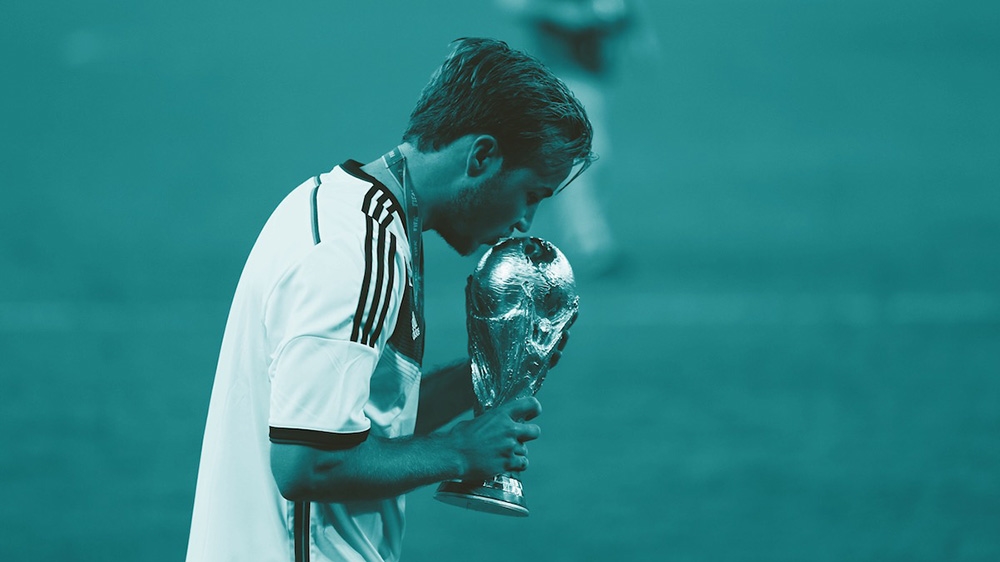How World Cup 1994 set the tone for future of Nigerian football
It marked Nigeria’s debut in the tournament but World Cup 1994 set the benchmark for those who followed.

Follow Al Jazeera’s World Cup 2018 coverage.
The 1994 World Cup in the US marked Nigeria’s debut in the global tournament.
Keep reading
list of 4 itemsRio Mayor on hosting World Cup, Olympics together: ‘DON’T!’
‘As important as Pele’: Brazil mourns football great Zagallo
Football ‘can bring joy’ to Lebanon amid Gaza war
After years of disappointment, and going close in 1978 and 1990, the African side was finally able to reach the World Cup under Dutchman Clemens Westerhof – the Golden Generation setting a benchmark for those who follow.
But Daniel Amokachi, member of that World Cup squad, said the project to reach USA 94 actually took five years.
“It all started from 1989 when we failed to reach Italia 90 and the coach made it clear that he will make us the first to play at the World Cup,” Amokachi told Al Jazeera.
“We had a blend of experience and fearless young players as well as a manager who had the power of motivation and the ability to bring the best out of his players.
“What sounded like a motivational talk turned into reality. We became more than a football team. We became a strong family.”
|
|
That mentality and spirit saw them conquer the continent by winning the 1994 African Cup of Nations just before the World Cup.
But, paired with Bulgaria, Argentina and Greece, pundits predicted an early exit for the debutants.
The squad comprised veteran Stephen Keshi, amazing Sunday Oliseh, exciting Jay-Jay Okocha, goal-king Rashidi Yekini, talented wingers in Emmanuel Amuneke and Finidi George, and marauding Amokachi – the Super Eagles had their wings well spread out.
It all started with a 3-0 win over Bulgaria.
“We went into the tournament unrated and as underdogs. Before Bulgaria recovered, we’d gone ahead and tore them apart,” recalled defender Austin Eguavoen.
“We were playing without fear. We had freedom and made the most of it like excited boys left to play freely without limitations.”
Brimming with confidence, it was the lack of experience that cost them against Argentina and resulted in a 2-1 loss.
But, against all odds, Nigeria qualified for the second round courtesy a 2-0 win over Greece.
The Eagles soared well above their own expectations.
But they faced an Italian side that depended on a half-fit Roberto Baggio and the tactical nous of experienced manager Ariggo Sacchi.
Winger Emmanuel Amuneke put Nigeria in the lead with a 17th-minute instinctive goal, and a shocking quarter-final spot beckoned.
The Super Eagles were two minutes from winning before a slip from Sunday Oliseh gave Baggio the chance to equalise.
Baggio converted an extra-time penalty to take Italy through and shatter Nigerian dreams.
“We had a brilliant manager but the World Cup was a new place and the inexperience stepped in,” said Eguavoen.
“Now 20-odd years later, I can say that we could have gone to the semis but we’d already punched above our weight.”

Despite the disappointment, Amokachi said they opened the doors to other African teams and some of the younger generation.
“We followed Cameroon’s impressive quarterfinal outing in 1990 by doing well for the continent. Two years later, we followed it up by returning to the US and win Africa’s first Olympics football gold.
“We became the talking point. Clubs now wanted to sign Nigerian players and little children started labelling us idols and legends.
“Playing in the World Cup changed football in the country.
“What kept us going was the love that we had for each other.”